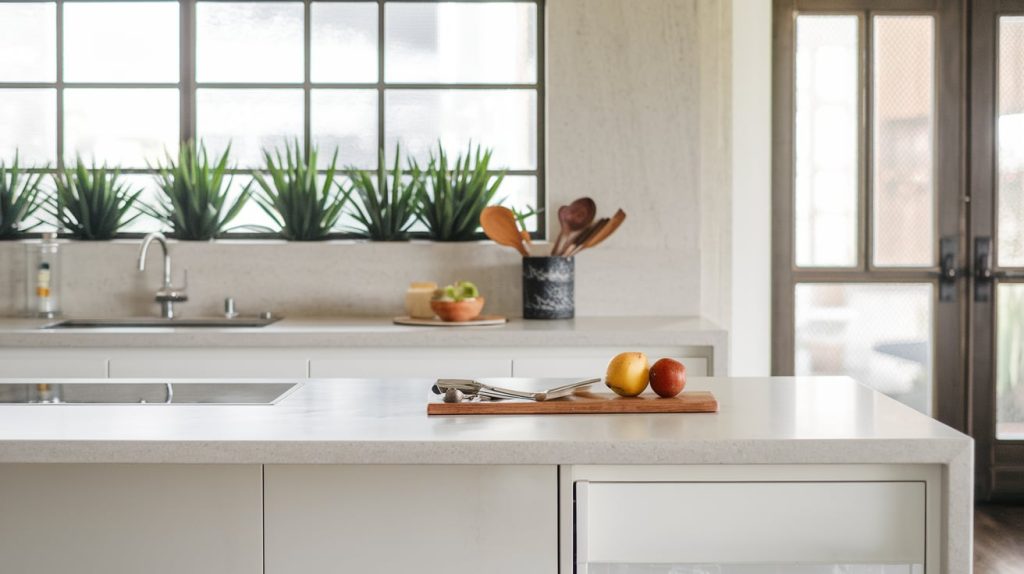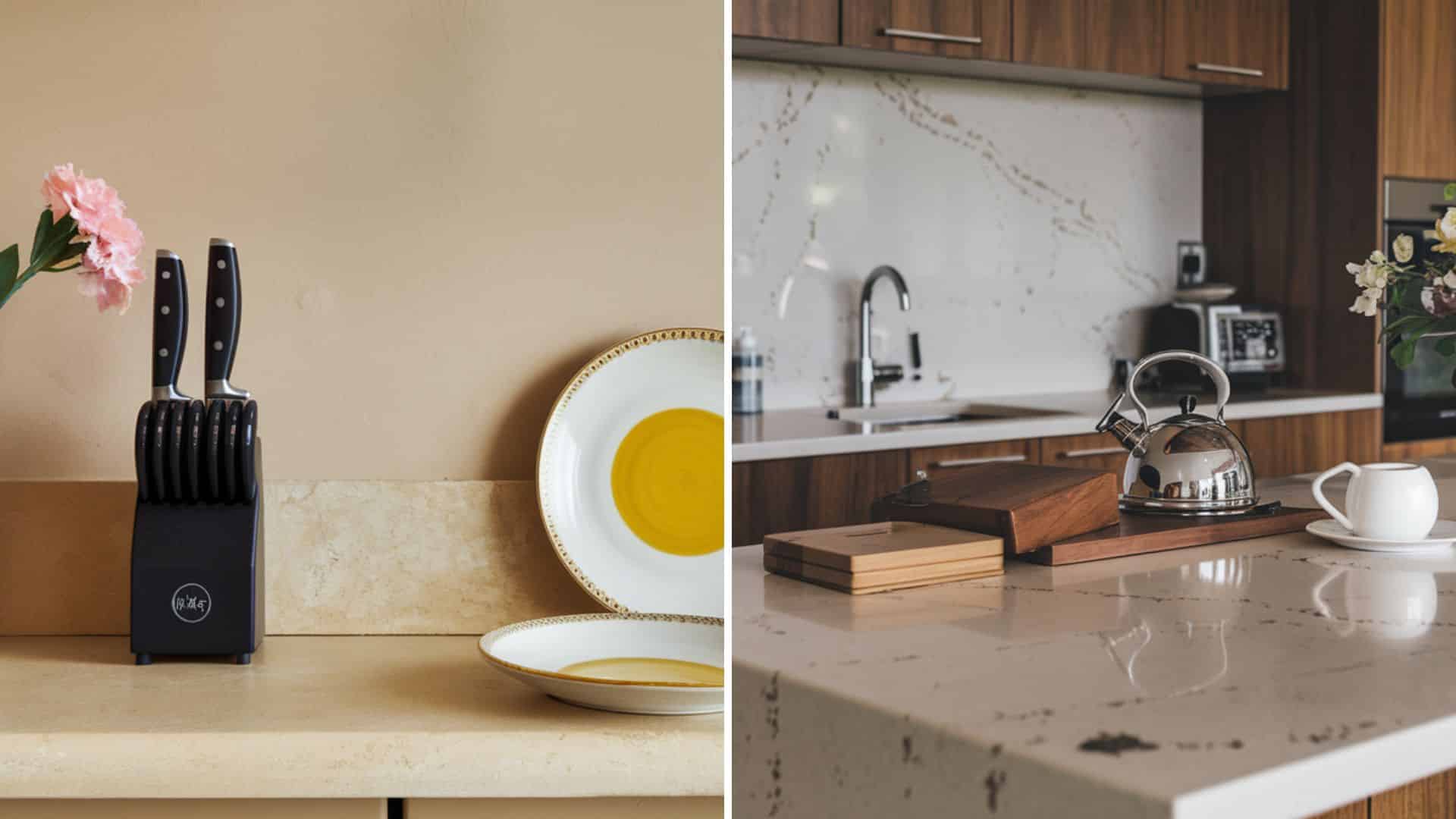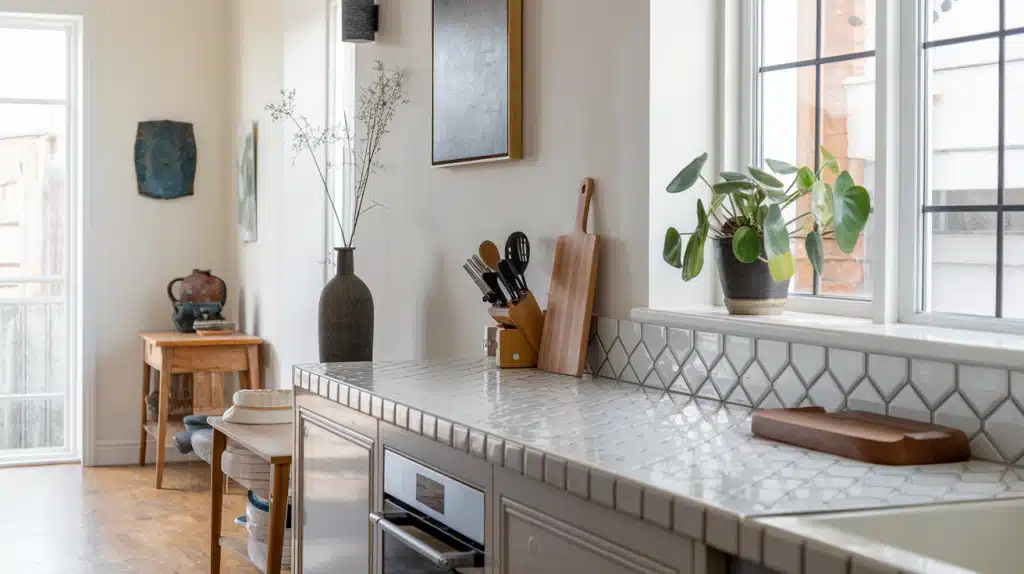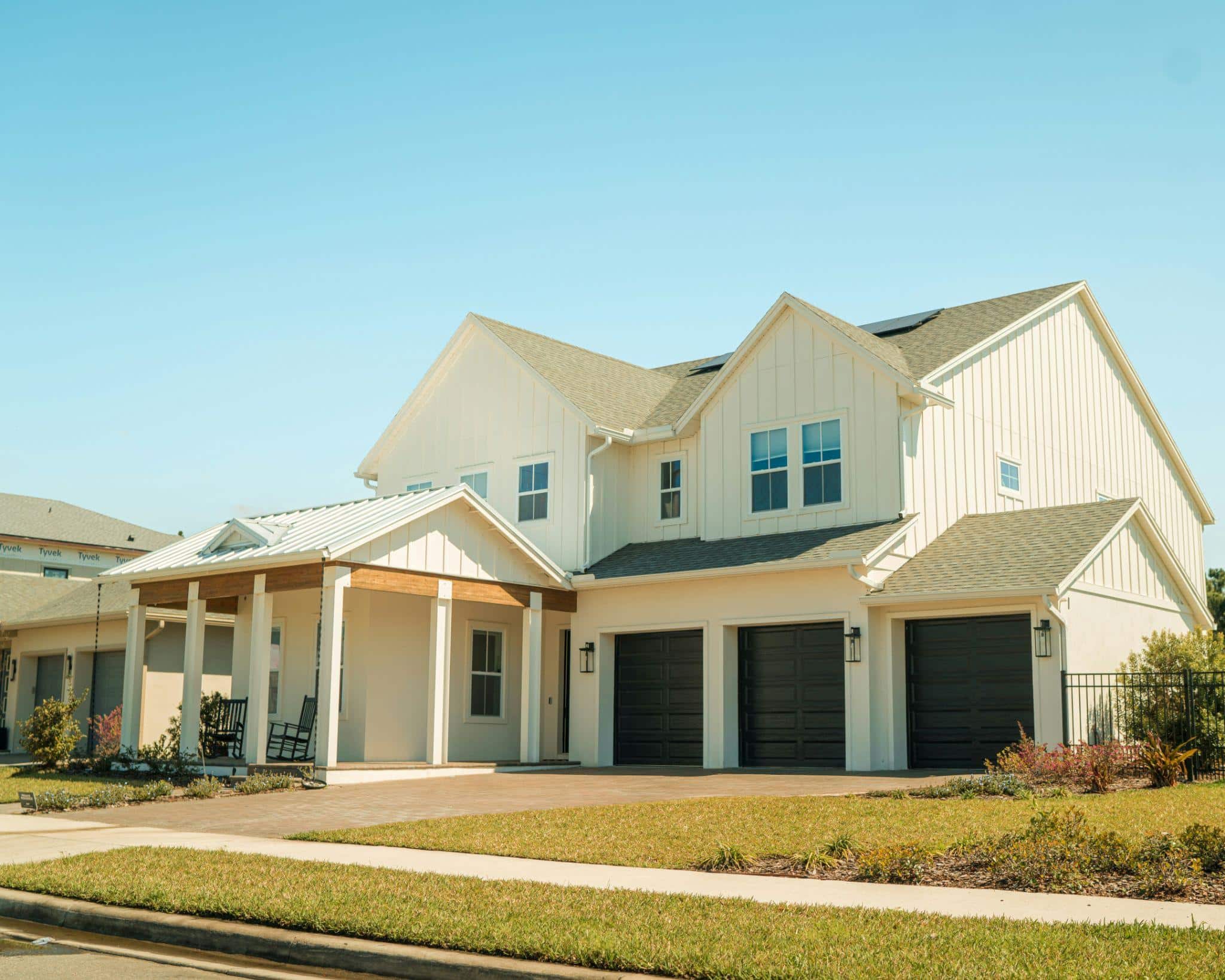I spend hours talking to homeowners who are stressed about picking the right countertops.
They know this choice will impact their daily life and home value for years to come.
But with so many options available, how do you choose between two of the most popular materials today?
Here’s what I’ve learned after years in the industry: Most people focus on the wrong things when comparing porcelain and quartz countertops.
The truth is, one material clearly wins for most homeowners, but not for the reasons you might think.
I’ll break down exactly which countertop performs better in real-world situations, save you money long-term, and actually make your daily cooking easier.
Let me show you the simple decision framework that takes the guesswork out of this important choice.
What Are Countertops? All the Basics You Need to Know
Countertops are flat work surfaces that sit on top of cabinets in kitchens, bathrooms, and other areas of your home.
They serve as the main workspace for daily tasks like cooking, food preparation, and storage. Beyond function, countertops also act as a major design element that can define your room’s style and increase your home’s value.
Countertops are essential elements in your home that serve multiple important functions. They provide daily functionality as work surfaces are used dozens of times each day for cooking and food preparation.
Quality countertops also boost your home’s resale value while defining your kitchen’s overall style and appearance. Most importantly, they must be durable enough to handle constant heat, scratches, stains, and daily wear from regular use.
Standard measurements
- Depth: 25-26 inches from the wall to the front edge
- Thickness: 1.25-1.5 inches for most materials
- Height: 36 inches from the floor with standard cabinets
- Overhang: 1-1.5 inches beyond cabinet doors
Understanding these basics helps you choose countertops that combine beauty, function, and value for your specific needs and lifestyle.
What Is a Porcelain Countertop?
A porcelain countertop is a work surface made from porcelain slabs, which are created by pressing and firing clay, minerals, and other natural materials at extremely high temperatures.
This process creates a dense, non-porous surface that mimics the look of natural stone, wood, or even fabric textures.
Key characteristics of porcelain countertops
- The ultra-thin profile – typically 6-20mm thick, much thinner than stone
- Large format slabs – can span entire countertop areas with minimal seams
- Non-porous surface – doesn’t absorb liquids, stains, or bacteria
- Heat resistant – can handle hot pots and pans without damage
- Scratch-resistant – harder than most natural stones
- Lightweight – easier to install than heavy stone materials
Popular porcelain styles include:
- Natural stone looks – marble, granite, and travertine patterns
- Wood grain textures – realistic wood appearance without maintenance
- Solid colors – clean, modern finishes in various shades
- Concrete effects – industrial-style surfaces with subtle texture
Maintenance Tip for Porcelain
- Daily cleaning – Use warm water and mild dish soap with a soft cloth or sponge.
- Remove tough stains – Apply baking soda paste for stubborn marks, then rinse thoroughly.
- Avoid impact damage – Don’t drop heavy items as porcelain can crack or chip.
- Use non-abrasive cleaners – Skip harsh chemicals and scouring pads that can dull the surface.
- Handle with care – While heat resistant, avoid extreme temperature changes that could cause thermal shock.
Pros and Cons of Porcelain
| Pros | Cons |
|---|---|
| Extremely heat resistant (2000°F) | Higher cost |
| Ultra-thin profile options | Limited color options |
| Lightweight installation | Difficult to repair |
| Stain and scratch-proof | Fewer installers available |
| Large slabs, fewer seams | Can crack with impact |
Porcelain countertops offer the beauty of natural materials with superior performance. They require minimal maintenance, resist stains and scratches, and are suitable for use in both kitchens and bathrooms.
The wide range of designs makes them suitable for any style preference.
What Is a Quartz Countertop?

A quartz countertop is an engineered stone surface made from approximately 90-95% natural quartz crystals mixed with polymer resins, pigments, and other binding agents. This combination creates a durable, non-porous surface that offers consistent patterns and colors while maintaining the strength of natural stone.
Key characteristics of quartz countertops:
- Engineered composition – combines natural quartz with resins for stability
- Non-porous surface – doesn’t require sealing and resists stains
- Consistent patterns – uniform appearance without natural stone variations
- Scratch-resistant – harder than granite and most natural stones
- Heat resistant – can handle moderate heat, but may discolor with extreme temperatures
- Low maintenance – requires only soap and water for daily cleaning
Popular quartz features include:
- Color variety – available in hundreds of colors and patterns
- Thickness options – standard 2cm or 3cm slabs for different looks
- Edge profiles can be shaped into various decorative edges
- Integrated sinks – seamless sink integration for modern designs
Maintenance Tip for Quartz
- Clean spills quickly – Wipe up acidic substances like wine or citrus juice immediately.
- Use gentle cleaners – Stick to soap and water or quartz-specific cleaners for best results.
- Protect from heat – Always use trivets under hot cookware to prevent discoloration.
- Avoid harsh chemicals – Skip bleach, oven cleaners, and acidic products that can damage the resin.
- Polish occasionally – Use quartz polish monthly to maintain shine and protect the surface.
Pros and Cons of Quartz
| Pros | Cons |
|---|---|
| Wide variety of colors and patterns | Can discolor with heat |
| Consistent appearance | Heavy needs strong support |
| Widely available | Visible seams on large areas |
| Good impact resistance | Mid to high price range |
| Established repair methods | Requires professional installation |
Quartz countertops combine the beauty of natural stone with enhanced durability and consistency.
They work well in busy kitchens because they resist bacteria, stains, and chips while requiring minimal upkeep.
The wide selection of colors and patterns makes them suitable for any design style.
Porcelain vs Quartz Countertops: Quick Comparison
Porcelain and quartz countertops are two popular engineered options that offer durability and style. Here’s a quick comparison to help you choose the right surface for your kitchen.
| Feature | Porcelain | Quartz |
|---|---|---|
| Heat Resistance | Excellent (2000°F) | Moderate (discolors) |
| Weight | Lightweight | Heavy |
| Thickness | Ultra-thin (6-20mm) | Standard (2-3cm) |
| Design Options | Limited colors | Hundreds of patterns |
| Seams | Minimal | Visible in large areas |
| Installation | Specialized tools needed | Professional required |
| Repair | Difficult | Easier |
| Availability | Limited suppliers | Widely available |
| Cost | Higher | Mid to high |
| Impact Resistance | Can crack | Good resistance |
Choose porcelain for superior heat resistance and thin profiles. Choose quartz for more design options and easier availability. Both offer excellent durability and low maintenance.
Which Is Better ? Quartz is generally the better choice for most homeowners. It offers proven durability, hundreds of design options, and widespread installer availability. Choose porcelain only if you need extreme heat resistance or ultra-thin profiles. Quartz provides the best balance of performance, style, and value for typical kitchen use.
Conclusion
After comparing porcelain and quartz countertops across all the key factors, quartz emerges as the clear winner for most homeowners.
It delivers the perfect balance of durability, design flexibility, and practical value that busy families need.
While porcelain offers superior heat resistance, quartz’s proven track record, widespread availability, and hundreds of design options make it the smarter long-term investment.
You’ll find qualified installers easily, enjoy consistent quality, and have repair options when needed.
The bottom line? Unless you’re placing extremely hot cookware directly on your counters daily, quartz will serve you better in almost every scenario.
Ready to move forward with your kitchen renovation? Start by getting quotes from certified quartz installers in your area.
Your future self will thank you for choosing the material that combines beauty, performance, and peace of mind.
Cooking up style? See more kitchen and dining ideas worth saving.









